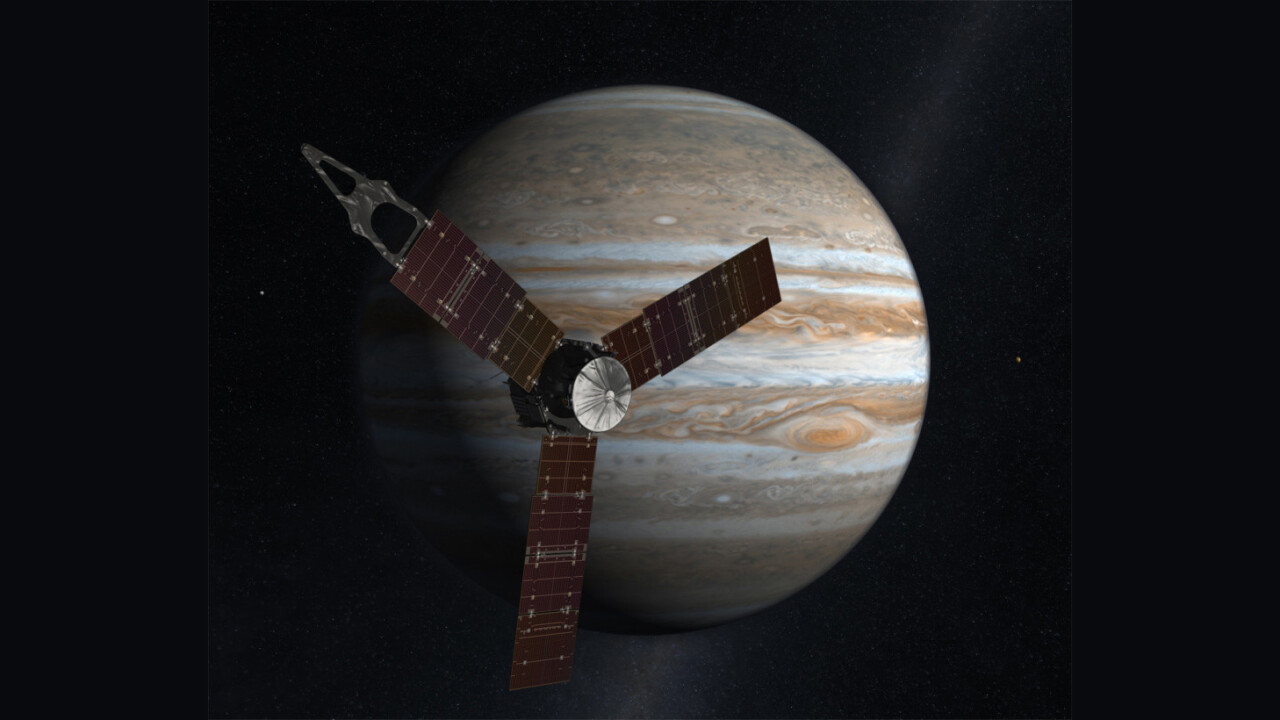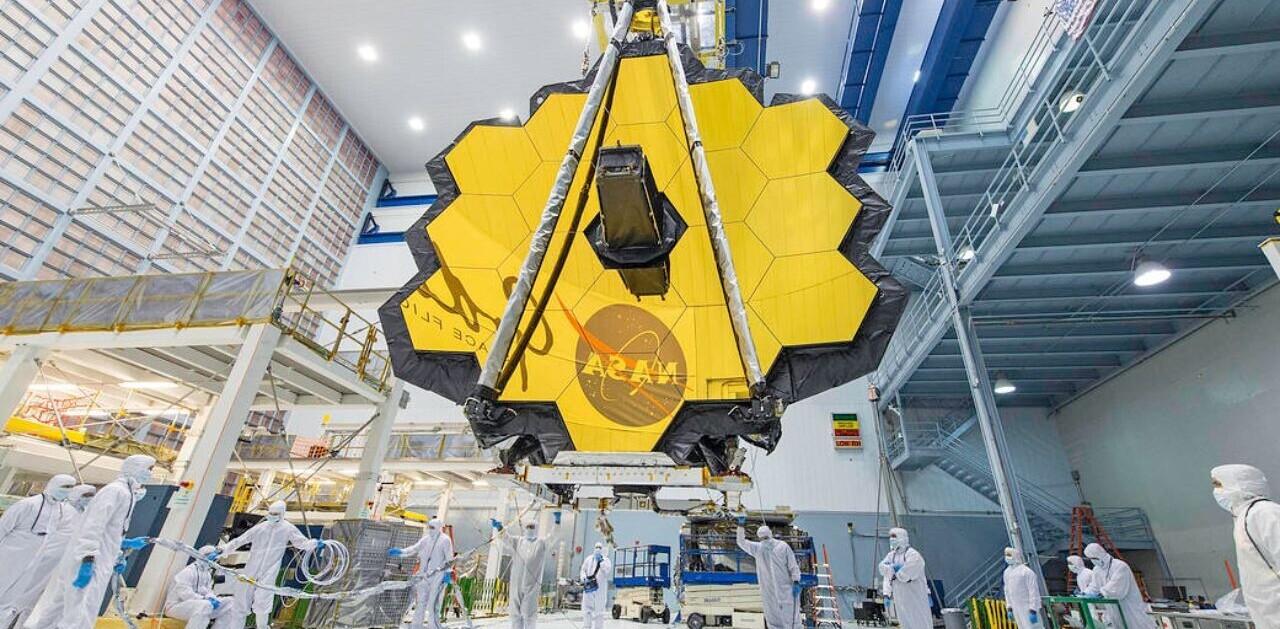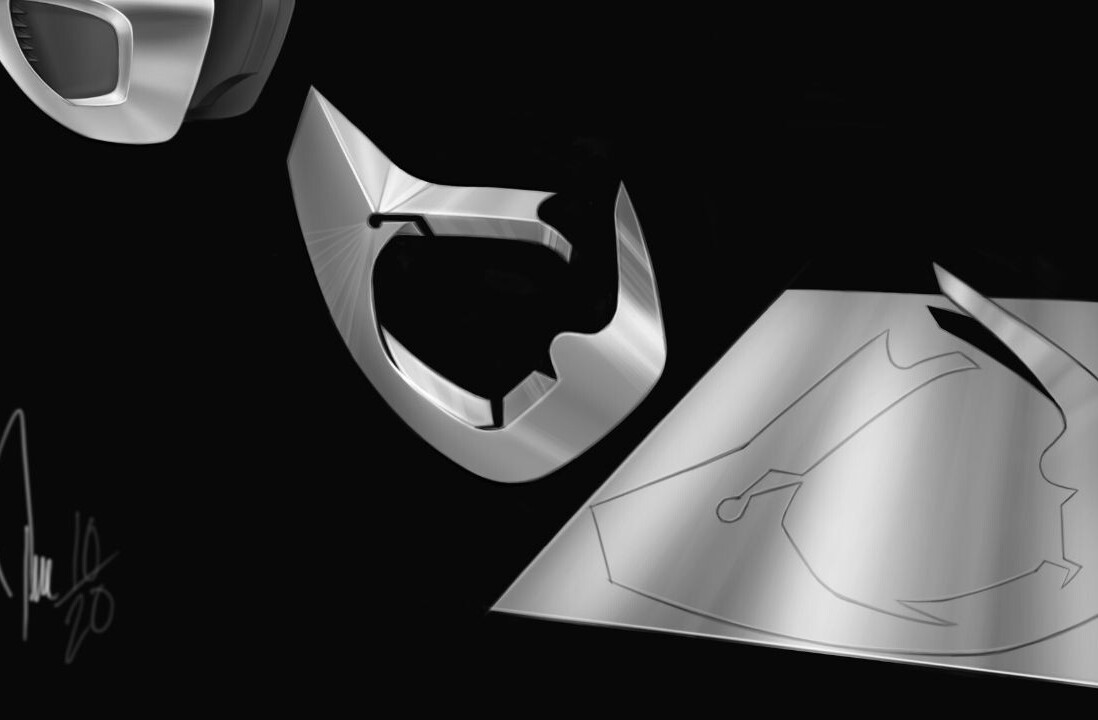Nearly five years after it was first launched in August 2011, NASA’s Juno spaceship has finally entered Jupiter’s orbit. At 11:53PM ET/8:53PM PT, the space agency received confirmation that the spacecraft had turned on its main engine, which burned for 35 minutes to slow down and allow Juno to be drawn in by Jupiter’s gravitational pull.
Engine burn complete and orbit obtained. I’m ready to unlock all your secrets, #Jupiter. Deal with it.
— NASA's Juno Mission (@NASAJuno) July 5, 2016
It’s a monumental achievement for NASA: the feat saw Juno cover 445 million miles in space to get closer to Jupiter than any other spaceship in the history of mankind. It is now in a highly elliptical 53-day orbit around the giant planet.
Broadcast live streaming video on Ustream
The goal of this mission is to determine how much water is in Jupiter’s atmosphere, in an effort to learn about which planet formation theory is correct. NASA also wants to measure the composition and temperature of Jupiter’s atmosphere, and how its magnetic force field affects the atmosphere there.
Jupiter emits massive amounts of radiation and flings debris with great force; Juno will avoid these belts for most of its time in the planet’s orbit. But at the end of the 53-day cycle, it will be within close proximity of the planet’s equator – close enough to study the atmosphere and magnetic field.
At 12:30AM ET, the spaceship is scheduled to re-orient itself toward the sun to recharge its batteries. If the maneuver is successful, it’s in the clear. You can follow along by tuning into the livestream above.
Get the TNW newsletter
Get the most important tech news in your inbox each week.






